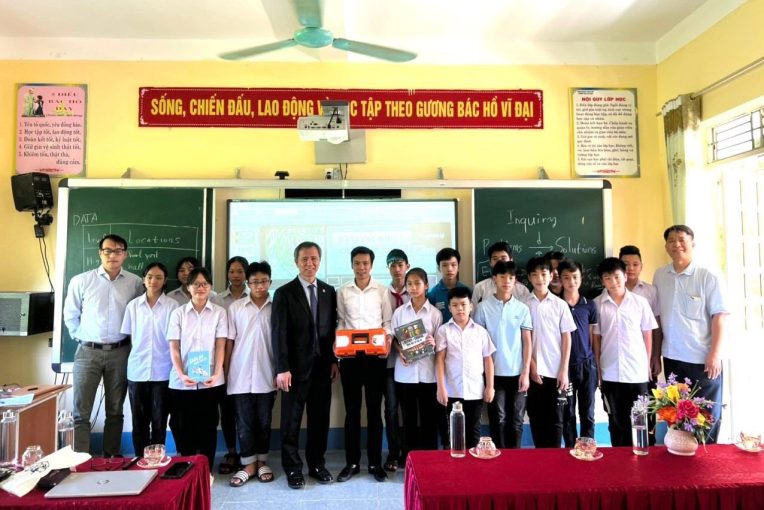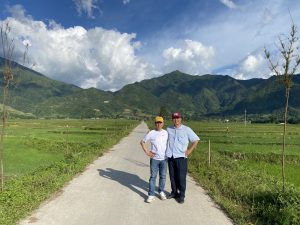Dr. Do-Yong Park is a recipient of the Fulbright Award for the third time.
The grant will support his project in Hanoi, Vietnam, where he will focus on two main goals. First, he will teach a course on research methodology in Science, Technology, Engineering, and Math (STEM) education at one of Hanoi’s premier universities of science which will provide academic training to STEM professors and students. Second, he will train lead teachers and administrators in STEM education so that they can continue to operate the program in rural schools in the northern part of Vietnam including Lao Cai, Mu Cang Chai, and Than Uyen. This will prepare K-12 teachers and administrators for sustainability of the program after he leaves.
The project will run for five weeks beginning in December 2023. During the first half of his time, he will collaborate with STEM professors at Vietnam University (VNU) Hanoi University of Science to teach research methodology in STEM education. This will academically equip STEM professors and students with STEM education knowledge and skills in STEM education research.
During the other half of his time, he will train teachers, administrators, and students in rural schools located near mountainous areas in the northern part of the country, which will practically equip STEM teachers, administrators, and students with STEM education knowledge and skills.
Because of a lack of fine educational materials and difficulty in training teachers in those rural regions, students in those regions tend to benefit less from quality STEM education. In general, rural schools tend to receive less attention when it comes to national educational reform efforts including STEM education, robotic education, and high-tech teaching related to artificial intelligence (AI), augmented reality (AR), virtual reality (VR), and the internet of things (IoT). STEM education may not be as successful as expected if these large numbers of students are not provided with highly regarded educational programs.
According to a 2022 report from the World Bank, the importance of STEM education in rural schools cannot be overstated, as approximately 61% of the population resides in rural areas in Vietnam. This figure is as high as other developing countries such as Cambodia (75%), Indonesia (42%), Ethiopia (77%), and Afghanistan (71%). However, Vietnam has one of the most dynamic market economies in the world, averaging over 2.5% to 3.5% Gross Domestic Product (GDP) growth per year over the past three decades. In recent years, Vietnam has experienced a whopping economic growth rate of around 7% per year, however, GDP growth is projected to ease to 6.3% in 2023, down from 8% in 2022 due to the slowdown of domestic demand and exports. The labor market has been concentrated in certain industries that are now saturated, so they need something else.
In response to Vietnamese’ stellar economic growth, a STEM education program was introduced at K-12 schools in Vietnam around 2014, and it was incorporated into the national curriculum in 2019. The goal was to produce STEM workforce to meet the needs of industries. The lack of STEM-trained teachers, however, is hindering the implementation of STEM education at the K-12 level nationwide.
Fulbright alumni have become heads of state, judges, ambassadors, cabinet ministers, and university presidents, as well as leading journalists, artists, scientists, and teachers. They include 61 Nobel Laureates, 89 Pulitzer Prize winners, 76 MacArthur Fellows, 16 Presidential Medal of Freedom recipients, and thousands of leaders across the private, public and non-profit sectors.



